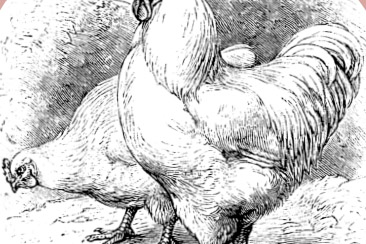Epigenetic DNA sequencing may be used to identify gene expressions of ‘stress’ in chickens
How do you know the free-range chicken you buy from the supermarket really had a stress-free life? The answer may actually be written in the chicken’s DNA, and using the right tools, it is possible to decrypt this information.
Epigenetics is a relatively new area of study that aims to measure the expression of particular genes in humans and animals in relation to their environment and living conditions. When humans and animals experience stress, hormones called corticosteroids are released in the brain. Long-term effects of stress levels of stress and make changes to brain chemistry which modifies the gene expression that is measurable using DNA sequencing processes. This technology has been used to study the effect of exposure to pollution, drugs, radioactivity, psychological stress and child welfare in humans.
It is expected that animals raised in more stressful situations, such as chickens in battery cages, will have a different epigenetic profile than animals raised in less stressful situations, such as free-range environments.
Research has already been conducted by animal welfare scientist Dr Jessica Walker and adjunct evolutionary biologist Professor Peter Lockhart revealed that the TPH2 gene, related to the production of serotonin, is more expressed in ‘pecking’ chickens than ‘non-pecking’ chickens.
Molecular ecologist, Professor Stéphane Boyer has headed a project with a team of biologists and animal welfare and behaviour scientists, aiming to develop a simple epigenetic test to assess chicken welfare from fresh meat, which could then be used as a commercial testing service. Public opinion has driven a need to consume meat raised in ‘humane’ conditions; consumers want to know that their dinner did not ‘suffer’. In addition, for New Zealand producers to quantify the welfare of their chickens on a world standard has the potential to increase New Zealand’s credibility as a supplier and the international demand for humanely-raised, free-range chickens.
This project is a first look at studying animal welfare from an epigenetic point of view and fits well into Unitec’s research foci. Current research will study meat from commercial outlets and future research will study live animals in a range of captive environments.
Contact
Dr Kristie Cameron
kcameron@unitec.ac.nz
Professor Stéphane Boyer
sboyer@unitec.ac.nz

Leave a Reply